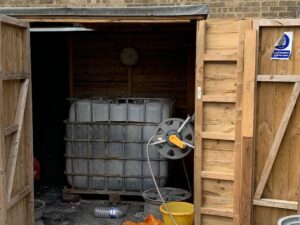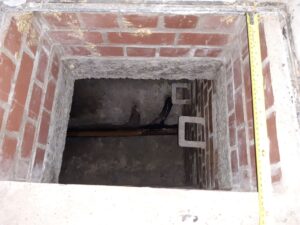Manufacturing company fined £15,000 for wood dust failures
A manufacturing company has been fined £15,000 after exposing its own workers to wood dust and failing to comply with two improvement notices.
Wood dust can cause serious and often irreversible health problems, including sino-nasal cancer, asthma and dermatitis. Employers have a legal responsibility to prevent or adequately control exposure in the workplace.
After concerns were raised to the Health and Safety Executive (HSE), inspectors from the workplace regulator went to Billy Davidson NV Stables Limited’s premises in Wingate, Durham on 17 June 2022. As a result, notices were served on the firm requiring it to undertake an examination of the local exhaust ventilation (LEV) system fitted to a chop saw and for failing to control exposure to wood dust from the use of a circular table saw.
Proper dust extraction can include having the right machinery, and vacuuming dust instead of sweeping is often required. HSE’s easy-to-follow guidance can be found here.
Despite the action taken by HSE, when inspectors returned to the site on 12 January 2023, the circular saw was still being used, despite the company saying it had been taken out of use. Likewise, the chop saw and LEV was also still being used, and the company had not provided HSE with confirmation it had been examined and was adequately controlling wood dust exposure.
The subsequent HSE investigation found the company had shown a disregard for health and safety due to their failure to comply with the improvement notices.
A HSE campaign to protect workers from exposure to wood dust is ongoing.
Billy Davidson NV Stables Limited was found guilty of contravening two counts of Section 33(1)(g) of the Health and Safety at Work etc Act 1974 and Regulations 9(2) and 7(1) of the Control of Substances Hazardous to Health Regulations 2002. The company was fined £15,000 and ordered to pay £4,500 in costs at Peterlee Magistrates Court on 24 January 2024.
Speaking after the hearing, HSE inspector Clare Maltby said: “This company showed a blatant disregard to the safety of its own workers.
“Companies are responsible for controlling the exposure to wood dust, a substance which is hazardous to health and can cause long term health effects such as occupational asthma.
“Compliance could have been achieved by simply getting a LEV fitted to the circular table saw and getting a competent person to undertake a thorough examination and test of the LEV on the chop saw.
“This case demonstrates that we will not hesitate to prosecute companies who fail to comply with the law.”
Notes to Editors:
- The Health and Safety Executive (HSE) is Britain’s national regulator for workplace health and safety. We prevent work-related death, injury and ill health through regulatory actions that range from influencing behaviours across whole industry sectors through to targeted interventions on individual businesses. These activities are supported by globally recognised scientific expertise.
- More information about the legislation referred to in this case is available.
- Further details on the latest HSE news releases is available.



